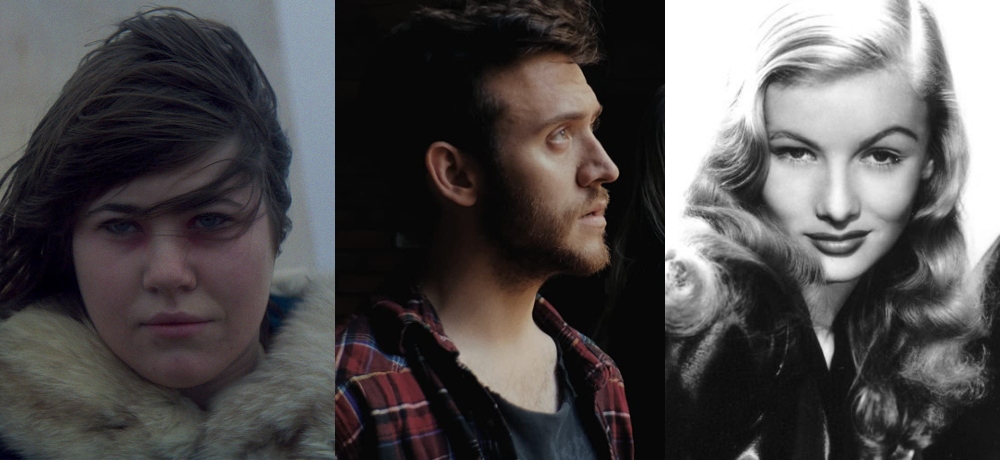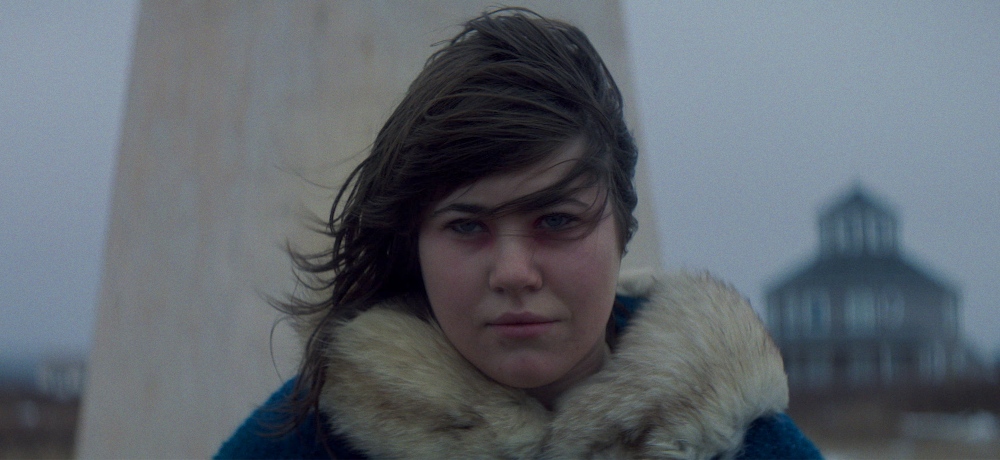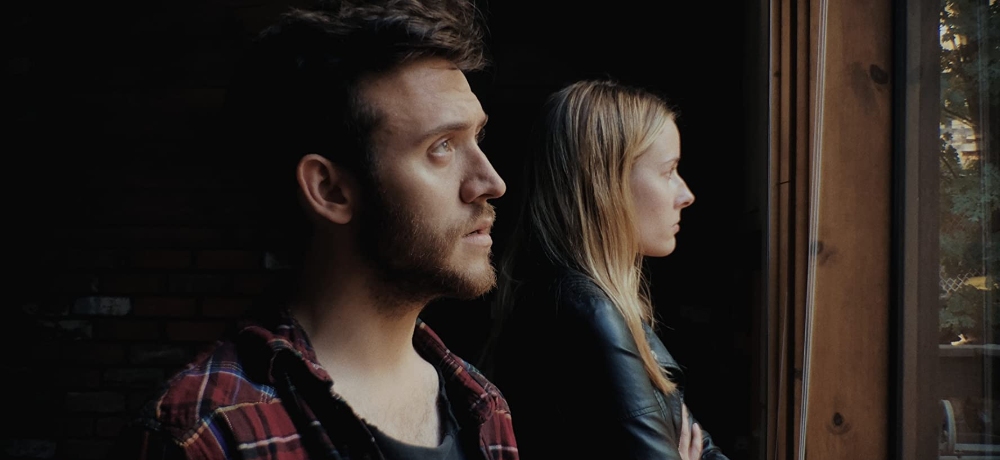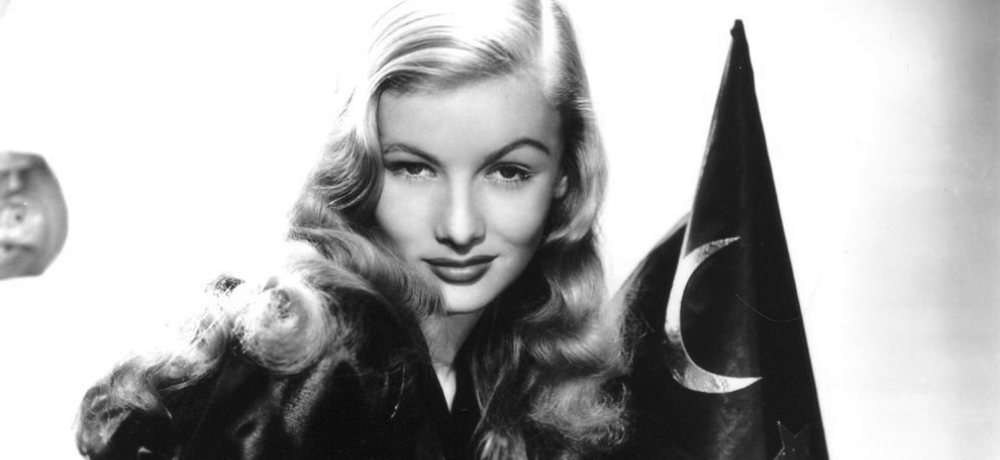


In this round-up, I’ll be wrapping up my coverage from Salem Horror Fest’s stellar lineup of films for their 2020 edition of their festival. The films I’ll be discussing here include Ryan Glover’s The Strings, Threshold by Powell Robinson and Patrick R. Young, and Sophie Peyrard’s documentary, The Witches of Hollywood.

The Strings: As someone who has been struggling with her own sense of creativity as of late, there was something about The Strings that really stuck with me long after I finished it. Centered around a singer/songwriter (played by real-life musician Teagan Johnston), the story follows Catherine in the aftermath of a messy breakup with her band, who pretty much jettisons her life and escapes to her aunt’s vacation home in search of inspiration and music that reflects who she is evolving into as an artist. During her getaway, Catherine begins to experience some creepy happenings: dark figures lurking in the shadows, entities popping up behind her in photos, and unexplained noises when she’s alone.
And as Catherine gets pulled in deeper to her own all-consuming creative process, things only get weirder and weirder for her, making Catherine wonder just who exactly is pulling her strings (a reference to the film’s title), and it makes her question what’s real and what isn’t anymore.
We’ve had two (that this writer has seen, at least) very distinctly different films about songwriters headed on a dark path as they become immersed in the creative process making the festival rounds this year: Amelia Moses’ Bloodthirsty and Ryan Glover’s The Strings, but despite any similarities they may share, the two films couldn’t be any more different. I give Glover a lot of credit for taking some very familiar tropes in genre storytelling and finding ways to do something different with them in The Strings, resulting in a soul-shaking experience that perfectly captures the maddening feeling of being too cut off from the rest of the world (something else that I think a lot of us can relate to these days).
On a technical level, the cinematography in The Strings is stunning (another aspect of the film that Glover handled), where it feels like the visual embodiment of seclusion and emotional detachedness in every frame. Glover often relies on natural light throughout The Strings, giving it this very organic feeling, and the wintry landscapes we see throughout the film were effective enough to chill my bones even while watching it during a 90-degree heat wave here in California.
The heart of The Strings is Johnston’s performance as Catherine, and while there is a bit of unevenness to her acting in the film (I’m guessing that came from scenes that were shot earlier than others), there is definitely a point in the film where it feels like she really settles into the role, and her portrayal of an artist who finds themselves at a frustrating crossroads, both creatively and personally, feels raw and totally unlike any other performance I’ve seen all year. The music (created by Johnston and her band Little Coyote) in The Strings is also incredibly haunting and soul-stirring, and I’m hoping we get a proper soundtrack release down the line, too.
Considering this is Glover’s first time at the helm of a feature all on his own (he co-directed a film back in 2013), he has a lot to be proud of with The Strings. It might take some time to get going, but once it does, it rewards your patience by creating a horrifyingly hypnotic, low-key descent into the unknown that will crawl right under your skin before you even realize it, and definitely will linger with you long after those credits roll.
Movie Score: 3.5/5
---------

Threshold: Being a sucker for road movies, I really enjoyed Threshold from Powell Robinson and Patrick R. Young, which was shot in less than two weeks using nothing but iPhones and a very limited crew, which proves a resourcefulness on their part. More of a character study than an outright horror fest, Threshold feels like it's embracing that time-old adage about stories being more about the journey than about the destination, although the destination is pretty damned memorable here as well.
Threshold first introduces us to Leo (Joey Millin), who is experiencing a bit of a rough patch. His marriage is failing, he’s struggling with his parental obligations, and his sister Virginia (Madison West), who was previously in rehab for some serious addiction issues, has seemingly taken up her destructive habits once again. Leo’s tasked with collecting his sister and getting her some help, and when he finally tracks her down, she appears to be suffering from a seizure or some type of withdrawal. But Virginia tries to explain to her well-meaning brother that she’s been clean for some time, and what’s really happening to her is that she’s possessed, and somehow linked to another former rehab patient, and the only way for her to make it through this ordeal is if they find this guy and sever their connection once and for all.
While there is definitely a handful of genre elements peppered throughout Threshold, the crux of what made the movie so enjoyable for me was that it really was about a broken family trying to repair itself and finding love, acceptance, and an emotional reconnection while traveling on the road together. The performances by both Millin and West do a lot of the heavy lifting in Threshold, where you really feel like you’re on this journey alongside them from beginning to end. There’s a genuine sense of camaraderie that comes through in their shared banter, and the emotional beats of both Millin’s and West’s characters go a long way here, too.
As mentioned, the film seems more centered around its characters than it is concerned with amping up scares or giving us a ton of horror tropes, but when Threshold does lean into certain aspects of the genre, it does it pretty darn well. With their latest collaboration, both Young and Powell demonstrate that you don’t need a huge budget to tell an interesting story, and that sometimes ingenuity and fortitude can go a long way.
Movie Score: 3/5
---------

The Witches of Hollywood: I’ve mentioned this numerous times in other reviews, but I haven’t met a genre documentary that I’ve ever been able to resist, so there was no way I was going to pass up the opportunity to check out The Witches of Hollywood. In this project, documentarian Sophie Peyrard sets out to examine the portrayal of witches throughout the history of cinema, honing in on some specific iconic characters, and for the most part, it succeeds. Clocking in at around 55 minutes, the biggest stumbling block for The Witches of Hollywood is that its limited run times feels like it hinders Peyrard’s thesis, and the last 20 minutes of the doc tend to gloss over a lot of topics and films from contemporary cinema that it definitely should have taken more time to investigate here.
Featuring an all-female lineup of interviewees (how refreshing!), including Peg Aloi, Heather Green, Pam Grossman, Dianca London, and Pam Grossman, The Witches of Hollywood dissects the duality of the character of the witch, how it can be something that is celebrated or viewed as evil, and how over time, witches became the embodiment of female empowerment, for better or worse, as well as transgressive femininity as well. Peyrard takes us all the way back to the days of The Wizard of Oz, Betty Boop, and Snow White to explore how witches first came into the fold in cinema, and how they evolved over time in TV shows like Bewitched and both iterations of Sabrina, or more recently in films like The Witches of Eastwick or The Craft, which is especially notable because it was one of the first times we ever saw a witch-centric narrative take on the issue of racism directly.
Where things began to fall apart for me in The Witches of Hollywood was in the documentary’s latter half, which seemed to race through so many different ideas and projects without any sort of real examination, which is a real shame. To do a documentary about these iconic figures, but completely gloss over a film like Robert Eggers’ The Witch just felt a bit weird, especially since Peyrard spends a good amount of time discussing Rosemary’s Baby (not about witches!) and Carrie (also, not a witch!) in the project, which is time that could have definitely been used better elsewhere.
The interviewees are insightful and all bring a lot to the table, but as a whole, The Witches of Hollywood really misses some big opportunities to create a truly expansive look at how witches have been treated in various forms of entertainment. It’s still an entertaining watch nonetheless, but Peyrard’s efforts here sadly fall a bit short in the end.
Movie Score: 3/5
---------
Check here to catch up on our previous coverage of Salem Horror Fest 2020!